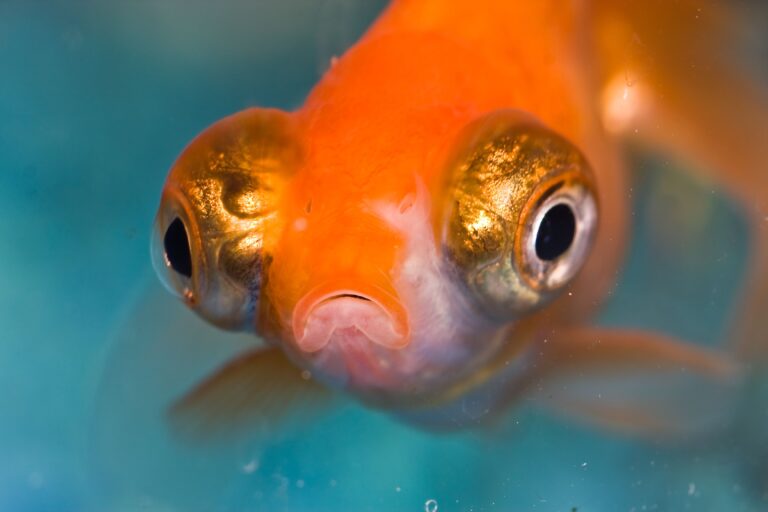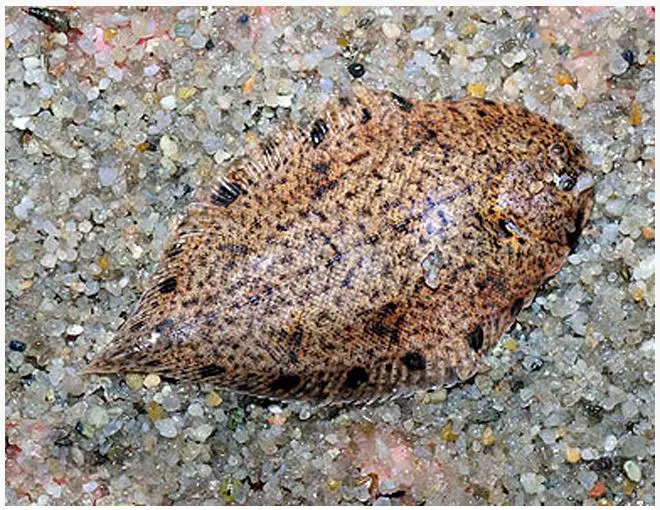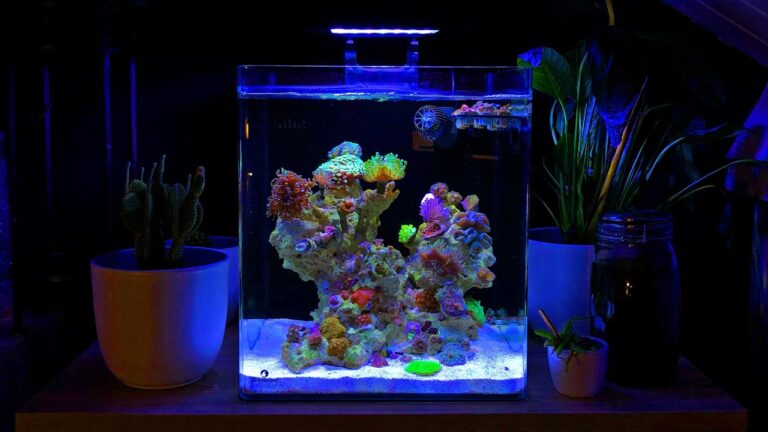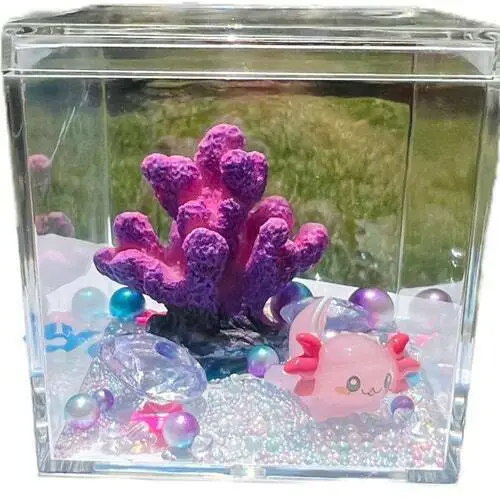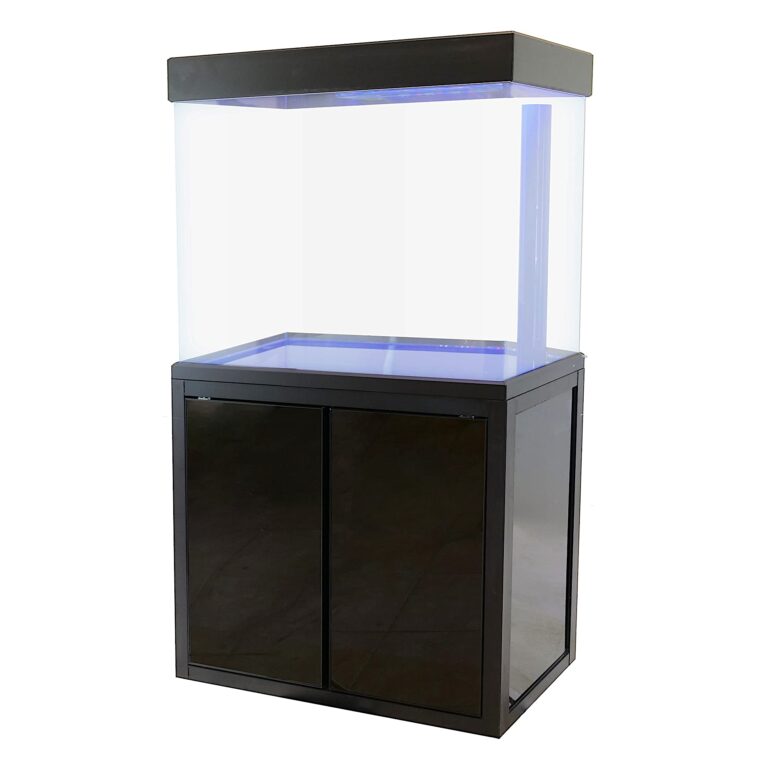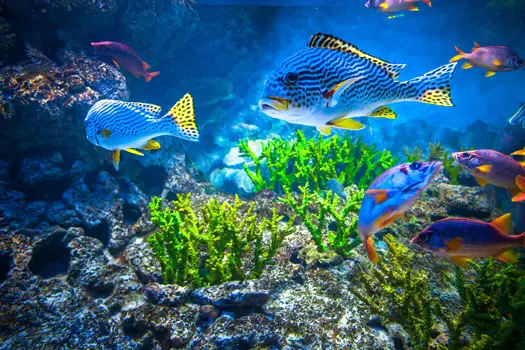How to Get Rid of Duckweed in Aquarium?
1. Remove as much of the duckweed as possible with a net or by hand, but be sure not to leave any behind.
2. Increase water flow in the aquarium to create stronger currents and limit stagnant areas where duckweed can thrive.
3. Add aquatic plants that compete for nutrients with the duckweed such as Anacharis and Elodea, which will help keep it at bay while providing oxygenation benefits to your fish tank.
4. Reduce nitrate levels in the aquarium by doing regular water changes and cleaning out debris from filter pads, gravel vacuuming substrate etc., which will reduce nutrient sources for duckweed growth .
5. Adjust lighting in the aquarium so that it is kept on for 10-12 hours per day; this will discourage fast-growing weeds like Duckweeds from taking over an environment intended for slower growing plants or algae mats instead..
6 Introduce certain species of fishes into your tank like grass carp or Siamese Algae Eater, they feed on Duck weed making them a great natural solution against Duck Weed infestation without harming other inhabitants of your tank .
7 Utilize chemical solutions available commercially such as Fluridone if manual removal methods are proving ineffective .
- Physically Remove the Duckweed: Use a small pair of tweezers or suction cup to remove as much duckweed from your aquarium as possible
- Be sure to get all of the root systems and any stems attached to them so that you can be sure it won’t grow back
- Increase Water Flow: Duckweed is able to flourish in still water, so by increasing the flow rate of your filter, you can make conditions less favorable for duckweed growth and eventually eliminate it altogether
- Reduce Nitrates: As with most aquatic plants, excess nitrates will encourage excessive duckweed growth, so try reducing these levels in your tank through regular partial water changes (10-20% per week)
- 4
- Introduce Predators : Adding fish such as goldfish or koi which feed on duckweed can help keep its population under control over time—just be sure not to add too many predators at once since they may disrupt the ecological balance in your aquarium too quickly! 5
- Utilize Alternatives : If all else fails, you may want to consider using an algaecide specifically designed for use in aquatic environments—just be aware that this could potentially harm other animals living in your tank if used incorrectly!
How to Get Rid of Duckweed Without Killing Fish
If you have a pond or other water feature that has become overrun by duckweed, there are ways to get rid of it without harming your fish. One option is to manually remove the weed from the surface of the water using a net and discard it in an appropriate trash receptacle. You can also introduce natural predators such as grass carp into your pond which will help reduce the population of duckweed over time.
Another way to keep duckweed under control is to provide shade on hot summer days with floating plants like lilies, which will deprive the duckweed of sunlight and prevent its growth. Finally, installing aeration systems into your pond can also help reduce excess nutrients where duckweed thrives off of them.
Fish That Eat Duckweed
Fish that eat duckweed are omnivorous and can be found in a variety of habitats, including ponds, lakes, rivers, and streams. Common fish species known to feed on this aquatic plant include largemouth bass, bluegills, crappies, koi carp, goldfish and some types of catfish. Duckweed is high in protein and serves as an excellent food source for these fish species.
Homemade Duckweed Killer
Homemade duckweed killer can be made from household ingredients and is a safe, eco-friendly way to eliminate unwanted duckweed in ponds or water gardens. The most common recipe calls for one part vinegar to two parts boiling water, which will kill existing duckweed but not prevent it from returning. For best results, the mixture should be applied directly to the plants by pouring slowly around the edges of them so that they are completely submerged in the liquid.
Duckweed Aquarium
Duckweed aquariums are becoming increasingly popular among aquarists due to their easy maintenance, aesthetic appeal and the fact that they provide an ideal habitat for many aquatic species. Duckweed is a floating plant that provides surface area and shade in the tank while acting as a natural filter by absorbing nitrates and other pollutants from the water. Duckweed can also act as supplemental food for fish since it contains high levels of protein.
Additionally, duckweed is incredibly fast-growing which makes it perfect for keeping your aquarium clean and well maintained.
Killing Duckweed With Roundup
Roundup, a popular herbicide, can be used to effectively kill duckweed. It is important to note that Roundup should not come into contact with other aquatic plants or animals as it can cause serious harm. Additionally, when using Roundup for weed control in ponds and lakes, you must take care to apply the correct dose of herbicide and avoid any run-off that could further contaminate nearby plant life or water sources.
Duckweed Removal Tool
The Duckweed Removal Tool is a great way to quickly and easily remove duckweed from ponds or other water bodies. This tool provides an efficient, non-toxic solution that can help keep your pond clean and healthy by removing excess amounts of floating weeds like duckweed. The tool has two parts: the handle and a mesh net, which allows you to reach into the water body, scoop up the plants, shake them off in a bucket, then discard them safely away from the pond.
It’s easy to use and requires no chemicals or special skills – just make sure you wear protective gloves when handling any aquatic vegetation!
Net to Remove Duckweed
Netting is an effective method for removing duckweed from a pond or lake. The net should be placed over the affected area, allowing it to sink and catch the weed as it rises to the surface. Afterwards, the netted duckweed can then be removed from the water with ease.
It’s important to note that this only works on small patches of duckweed and larger infestations may require more intensive treatment options such as adding aquatic herbicides into the water.
Duckweed Predators
Duckweed is a small floating aquatic plant that can be found in both fresh and saltwater habitats. While it is beneficial to many ecosystems, its rapid growth can lead to overpopulation which can have negative effects on water quality. Common predators of duckweed include fish, turtles, snails, ducks and other aquatic animals.
These creatures feed on the leaves of the duckweed for nutrition or use them as shelter from larger predators.

Credit: www.reddit.com
What is the Fastest Way to Get Rid of Duckweed?
Duckweed is an aquatic plant that can cause major problems in your pond or lake. It grows rapidly, blocking out sunlight and oxygen from other plants, reducing water quality and creating an ideal environment for mosquitoes to breed. Luckily, there are several ways to get rid of duckweed quickly and effectively.
The fastest way to get rid of duckweed is by using a combination of physical removal and chemical treatment. First, use a skimmer net or rake to remove as much visible duckweed as possible from the surface of the water body. Then apply algaecide to eliminate any remaining weed growth; this will kill the roots so they don’t regrow later on.
Finally, maintain good water circulation with aeration devices so that new weeds won’t be able to establish themselves in your pond or lake again due to lack of oxygenated water conditions. By following these steps you should be able to successfully control your duckweed problem without too much hassle!
Should I Remove Duckweed from Aquarium?
When it comes to aquariums, duckweed can be an eyesore and a nuisance. It grows rapidly, covering the surface of the water in no time. While some hobbyists might think that adding duckweed provides beneficial oxygenation to their tanks, this is not always true.
If you find yourself struggling with an out-of-control duckweed infestation, there are a few ways you can remove it from your tank.
Removing duckweed manually is one option, but it’s tedious work that doesn’t guarantee success as many pieces will escape back into the tank before you manage to get them all out. A better solution is using chemical treatments such as algaecides or copper sulfate which kills off the plant while leaving other aquarium inhabitants unharmed — just make sure to follow instructions carefully so as not to harm your fish and other aquatic life!
Some enthusiasts also recommend shading the aquarium with black plastic sheeting or dark cloth for several weeks, which limits photosynthesis and starves the plants of light needed for growth; however this method may take awhile depending on how much coverage you have in your tank.
Ultimately when deciding whether or not to remove duckweed from your aquarium depends on what type of environment you want create – if having visible green strands floating around isn’t aesthetically pleasing then using one of these methods can help keep them under control without harming any other creatures living in your tank!
What Eats Duckweed Aquarium?
Duckweed is a popular floating plant in many aquariums, and it’s not surprising why – duckweed can provide food for various fish that live in the aquarium. It is especially beneficial to species such as goldfish, minnows, guppies, and other smaller freshwater fish. When eaten by these types of fish, duckweed offers a natural source of protein which helps promote healthy growth and development.
Additionally, the small size of duckweed makes it an ideal snack for some species of bottom-dwelling scavengers like catfish or loaches. Duckweed also provides cover from predators for these less aggressive species when they’re feeling vulnerable or scared. Finally, if you have any shrimp living in your tank then there’s a good chance they will enjoy eating some duckweed too!
In conclusion, many different types of aquatic creatures can benefit from having access to this high-protein floating plant – making it an excellent addition to most aquarium environments.
EASY way to Remove DUCKWEED from Aquarium!
Conclusion
In conclusion, duckweed can be a nuisance in aquariums, but with the right knowledge and supplies it doesn’t have to stay that way. By following the above steps of siphoning it out regularly, adding floating plants or shade cloth to prevent excessive growth and using chemical treatments if needed, you can easily get rid of duckweed from your aquarium and enjoy its beauty without worry.
